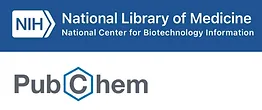AGGIORNAMENTO SCIENTIFICO IN TEMPO REALE FORNITO DA:

Top News
- Vitamin D Deficiency in Childhood Linked to Higher Autoimmune Riskby Neuroscience News on 21 Ottobre 2024
A recent study found that vitamin D deficiency during childhood accelerates the aging of the thymus, a crucial organ in training immune cells. As the thymus ages, it becomes less effective at filtering out cells that could mistakenly attack the body's own tissues, increasing the risk of autoimmune diseases like type 1 diabetes.
- AI Uncovers DNA Variants Linked to Psychiatric Disordersby Neuroscience News on 21 Ottobre 2024
Researchers developed an AI algorithm, ARC-SV, to detect complex structural variants in the human genome that previous methods missed. Analyzing over 4,000 genomes, researchers discovered thousands of complex variants, many affecting brain-related genes and linked to schizophrenia and bipolar disorder.
- 3D Brain Atlas Maps Key Stages of Brain Developmentby Neuroscience News on 21 Ottobre 2024
Researchers have created a 3D atlas of the developing mouse brain, offering a dynamic, high-resolution view of brain structures during embryonic and post-natal stages. This new tool allows scientists to explore how brain cells, such as GABAergic neurons linked to neurological disorders, emerge and interact during development.
- Viral DNA in Our Genome Linked to ALS and MS Susceptibilityby Neuroscience News on 21 Ottobre 2024
A new study reveals that ancient viral DNA embedded in the human genome is associated with genetic risk for amyotrophic lateral sclerosis (ALS) and multiple sclerosis (MS). Researchers found specific human endogenous retroviruses (HERVs) that influence susceptibility to these neurodegenerative diseases.
- Genetic Variants Linked to Brain Volume Shed Light on ADHD, Parkinson’sby Neuroscience News on 21 Ottobre 2024
A large-scale study identified 254 genetic variants that shape the volume of key brain regions responsible for memory, motor control, and behavior. Researchers analyzed DNA and brain scans from nearly 75,000 people, uncovering links between these variants and conditions like ADHD and Parkinson’s disease.
- Parent-Child Play Shapes Social Skills for Interacting with Peersby Neuroscience News on 21 Ottobre 2024
How parents and toddlers play together can predict children's future social interactions. By observing over 120 mother-child pairs, researchers found that responsive and assertive behaviors during play were linked to better social competence with peers.
- Home-Based Brain Stimulation Shows Promise for Treating Depressionby Neuroscience News on 21 Ottobre 2024
A new study demonstrates that home-based transcranial direct current stimulation (tDCS) is a safe and effective method for treating depression. Participants in the study who used tDCS at home showed significant improvements in depressive symptoms compared to those in a control group.
- Why PTSD Develops in Some but Not Othersby Neuroscience News on 21 Ottobre 2024
Fear memories initially form broad associations, but over time, they shift to become episodic memories tied to specific timelines. This process involves the hippocampus early on, with the dorsolateral prefrontal cortex integrating the event sequence later.
- New Genes Linked to Muscle Aging Discoveredby Neuroscience News on 19 Ottobre 2024
Scientists have identified new genes linked to muscle aging, offering potential targets for therapies to slow muscle loss in older adults. The study used artificial intelligence to analyze gene expression, identifying the gene USP54 as a key player in muscle aging and degradation.
- Listening to Music After Surgery Lowers Pain and Anxietyby Neuroscience News on 19 Ottobre 2024
A new study suggests that listening to music after surgery can significantly reduce pain, anxiety, and even heart rate, aiding recovery. An analysis of 35 studies found that patients who listened to music reported lower pain levels and used less morphine on the first day post-surgery compared to those who didn’t.
- Enhancing AI Accuracy and Confidence in Answer Generationby Neuroscience News on 19 Ottobre 2024
Researchers have introduced a novel method called Answer-prefix Generation (ANSPRE) to improve the precision and reliability of large language models (LLMs) in open-domain question answering. ANSPRE helps LLMs generate concise answers while providing more reliable confidence scores, a critical feature for high-stakes fields like healthcare, law, and education.
- Video Games Boost Cognition, Exercise Improves Mental Healthby Neuroscience News on 19 Ottobre 2024
A large-scale study has found that playing video games boosts cognitive abilities, but has no impact on mental health, while exercise improves mental well-being without affecting cognition. Over 1,000 participants completed cognitive tests after playing video games and completing a lifestyle survey.

















